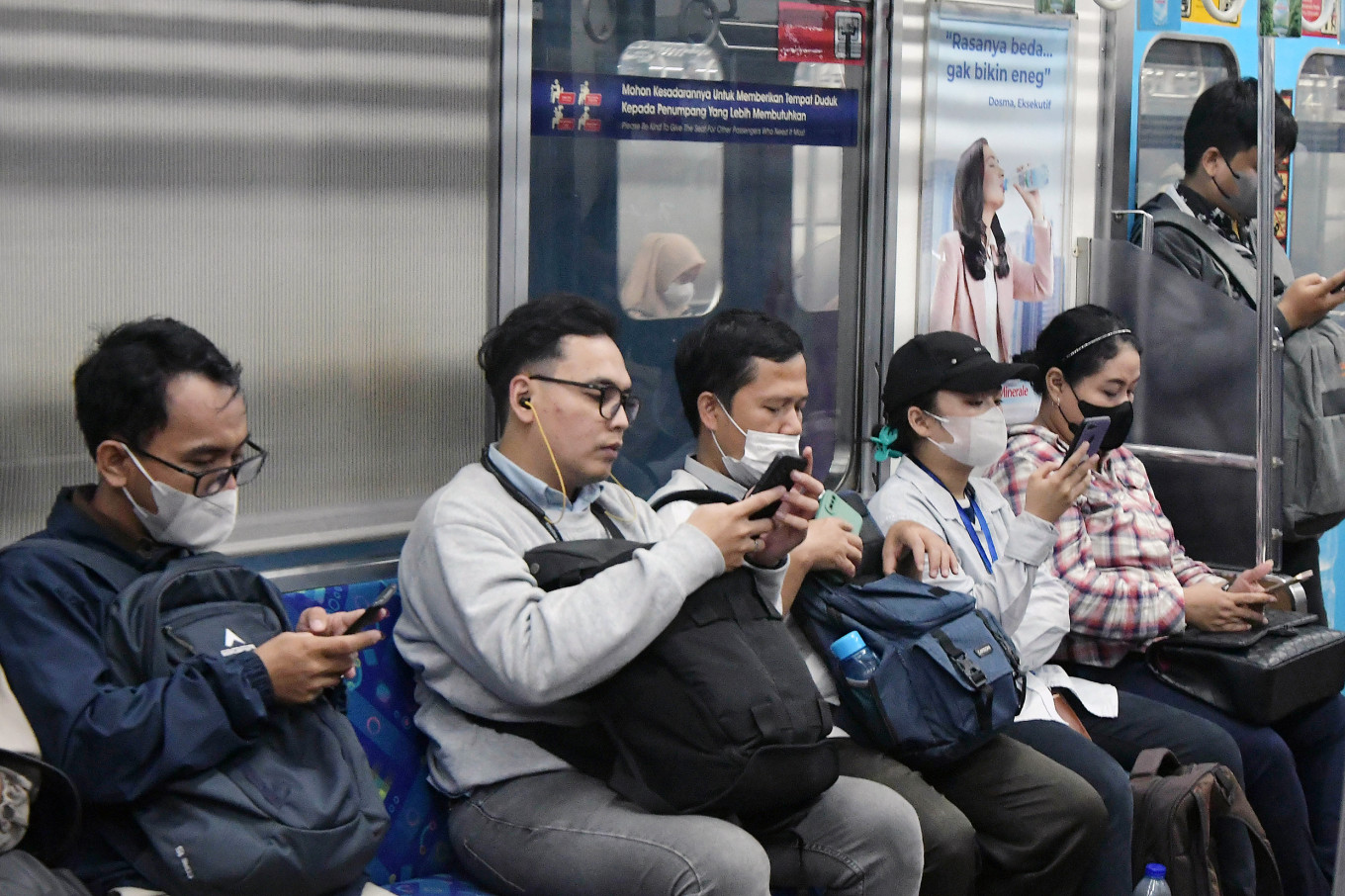Popular Reads
Top Results
Can't find what you're looking for?
View all search resultsPopular Reads
Top Results
Can't find what you're looking for?
View all search resultsJokowi declares COVID-19 pandemic over
People now expected to pay for their own vaccines and treatment, President says.
Change text size
Gift Premium Articles
to Anyone
P
resident Joko “Jokowi” Widodo has declared an end to the national emergency status of the COVID-19 pandemic, as the country now looks forward to further economic recovery after more than three years of disruption and tragedy.
Announcing his decision that revoked the emergency status on Wednesday, Jokowi said “we are now entering an endemic period.”
“The government hopes that this decision can spur further [growth] in the national economy and improve the public’s quality of life, social [welfare] and economy,” he said, adding that the public should still maintain a healthy lifestyle and personal hygiene nevertheless.
The decision, according to Jokowi, was based on the fact that the daily caseload was close to zero and that around 99 percent of Indonesians had antibodies against the coronavirus, as revealed by recent national serology surveys.
Now that the virus has become endemic, the public will have to start paying for COVID-19 vaccines and treatment on their own or through insurance programs, such as the National Health Insurance (JKN).
People, health authorities said, should learn to live with COVID-19 as an endemic disease and take their own health precautions against it because the virus would not go away even when the emergency status is lifted.
The government will also disband the COVID-19 task force, which has been at the forefront of pandemic handling efforts.
The World Health Organization (WHO) declared early last month that the disease was no longer a global health emergency. But Jokowi preferred to wait until the Health Ministry outlined a new strategy to treat the coronavirus as an endemic disease and to manage future pandemics based on guidelines from the WHO.
Indonesia has been easing health restrictions starting late last year, with the latest being two weeks ago when the government dropped mask mandates when in crowds, in indoor settings and on public transportation.
COVID-19 journey
Indonesia reported its first COVID-19 cases on March 2, 2020. Two weeks later, the President made his plea for people to stay at home, while nixing total lockdowns in the process, despite it being the more popular choice among countries worldwide at the time.
It took Indonesia less than five months since its first cases to surpass 100,000 cumulative cases in July and another four months to record five times as many cases, surpassing half a million infections in November 2020.
The start of the country’s inoculation program and declining cases in early 2021 lit a sense of hope that an end to the pandemic could be in sight. But, just four months later in June 2021, the highly contagious Delta variant appeared and began to wreak havoc, putting the health system at the brink of collapse.
The nationwide daily death toll hit a record high of over 2,000 on July 27, 2021. A week later, Indonesia passed the grim record of 100,000 cumulative deaths.
With the health system pushed to its limits, Jokowi enacted the four-tiered public activity restrictions (PPKM) system, which went on to become a trademark of the government's pandemic response, and it helped push the daily caseload back to the low three digits by the end of 2021. This marked the end of the second wave of infections.
The daily caseload then hit an all-time high in February 2022 during the Omicron-fueled third wave of infections, but deaths remained far lower than the Delta wave, partly thanks to the vaccination rollout.
Barring minor spikes in August and December 2022 as well as an even smaller hike last month, the daily caseload has largely remained stable at the low hundreds as the health system has seemingly caught up with the pressures of the pandemic.
And amid the low daily caseload, the government revoked the PPKM system late 2022, and dropped its mask mandates two weeks ago, all the while health authorities are still aiming for better vaccination coverage.
Just recently, the government simplified the COVID-19 jab regimen as part of endemic policy, allowing people to get any generally approved vaccine for their primary and booster doses. This is because coverage of the two-dose primary vaccination series for all age groups has remained stagnant at around 70 percent since April 2022, and only 30 percent of the target population has received a third dose, despite having been eligible for the jab since the start of 2022.
While the threat of the coronavirus is far back in the minds of most Indonesians since a few months ago, the COVID-19 pandemic, thought to be the worst global health crisis in recent memory, has still left its mar k in the country.
Over the course of the three plus years, Indonesia reported a total of 6.8 million infections and 161,000 deaths, according to data from the government. At least 2,087 health workers have died fighting the pandemic, according to independent data initiative LaporCOVID-19.
Countless businesses and companies were forced to close, while the tourism sector ground to a screeching halt.
Between 2020 and 2022, more than 2.5 million people were laid off, largely on account of pandemic pressures, according to one estimate from an employers’ group.










